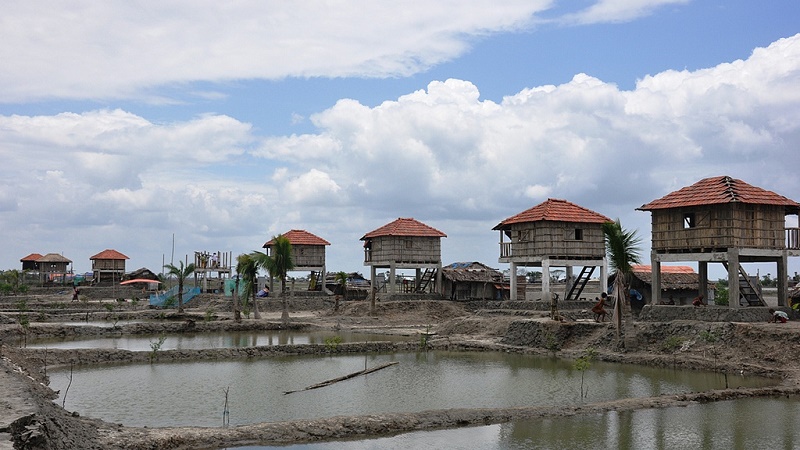Scientists have bad news for people on the front line of climate change impacts.
The 1.5C global warming limit vulnerable countries fought hard to include in the Paris Agreement may already be out of reach.
There is slim chance of stabilising temperature rise at that level without controversial negative emissions technology, according to a study published in Nature.
“The window for limiting warming to below 1.5C with high probability and without temporarily exceeding that level already seems to have closed,” the report found.
It is a blow for those living near the coast of Bangladesh or low-lying islands like Kiribati, which is preparing for an exodus as rising seas swallow homes.
Coral reefs dying and tropical heatwaves are also expected to kick in at moderate levels of global warming, affecting millions of people worldwide.
Weekly briefing: Sign up for your essential climate politics update
In the most up-to-date analysis available, researchers found national climate pledges were consistent with temperature rise of 2.6-3.1C above pre-industrial levels.
Some poorer nations said they could cut greenhouse gas emissions further with financial support. These conditional targets would cool the planet a further 0.2C.
That still leaves a lot of work to bend the curve to “well below 2C”, the main Paris goal.
Lead author Joeri Rogelj, at the Vienna-based International Institute for Applied Systems Analysis, stressed the importance of periodic reviews.
“The grain of hope for these most vulnerable nations is that the Paris Agreement provides a regular forum where ambition can be increased,” he told Climate Home.
Report: Activists row over bioenergy role in meeting 1.5C climate target
Governments meet for a “facilitative dialogue” in 2018 and a stocktake in 2023. These provide opportunities to ratchet up their commitment.
The grim numbers do not rule out eventually bringing average temperatures back below 1.5C, but this will involve sucking carbon dioxide out of the air.
That could mean using bioenergy with carbon capture and storage: growing plants to absorb CO2, burning them for energy and pumping the emissions underground.
Bioenergy is contentious because it puts energy crops in competition with food production for land, water and nutrients.
“It is a really important precondition to do this in a sustainable and a just way,” said Rogelj, adding: “The faster one cuts emissions, the less one relies on these massive negative emissions afterwards to clean up the atmosphere.”
The 1.5C threshold is still important and should not be dropped, he said. “The 1.5C limit is an expression of a risk assessment of dangerous climate interference. Even if we overshoot… the validity of that limit is still there.”
